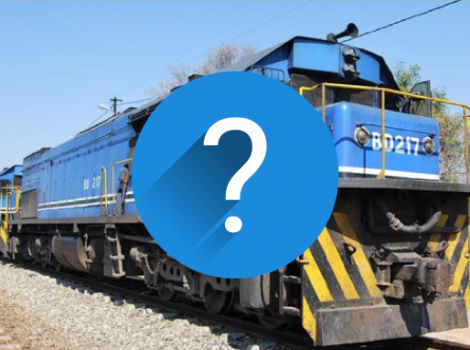
10 December 2024
Despite occasional efforts by the two sides to establish cooperation, the gap between Botswana’s expectations as a borrower and China’s loan offering has proven hard to close, writes Sara Van Hoeymissen.
Botswana and China will celebrate 50 years of diplomatic relations in 2025. Recent ties between the two countries have been relatively smooth. Former Botswana President Mokgweetsi Masisi visited Beijing twice during his time in office from 2018 to 2024. His last visit, on the occasion of the Summit of the Forum on China Africa Cooperation (FOCAC) in September 2024, saw the establishment of a strategic partnership between the two sides. Among the possible areas for cooperation mentioned in Chinese news reports were industry, agriculture, mining, clean energy, education and health. One area, that of finance for infrastructure, was conspicuously absent from the list.
Finance for infrastructure, once a pillar of China’s Africa policy, has become less important in Sino-African cooperation in recent years as sustainability concerns have driven China to turn down and reorient its offering. In Botswana, however, reservations about Chinese loans for infrastructure building emerged years ago.
Botswana stopped borrowing from Chinese policy banks after 2006 and concluded its last loan agreement with a for-profit Chinese lender in 2009. Botswana has nonetheless continued to benefit from grants as well as debt cancellation from China.
The shift from borrowing to solely receiving aid from China seems counterintuitive for an upper middle-income country with a relatively strong credit rating like Botswana. In fact, Botswana is in a relatively favourable position to drive a hard bargain when negotiating terms for external funding for infrastructure development. Botswana’s policy-makers see China’s loan offering as unattractive and have shifted to other lenders.
One of the key aspects of China’s loan offering that went against the wishes of Botswana’s policymakers was the requirement to work with a Chinese contractor for the construction of infrastructure financed through a Chinese loan. This requirement forms an integral part of the ‘state-co-ordinated investment partnerships’ that China offers to African countries. It brings together the Chinese state, which facilitates project negotiations, a Chinese policy bank that finances the project, and a Chinese company that executes the project.
The Botswana government values its independence to award tenders according to its own processes and standards. It has therefore avoided accepting tied loans and is even reluctant to accept tied aid for grant assistance. There is thus a structural incompatibility between China’s loan offering, which is essentially tied to the execution of the project by a Chinese contractor, and Botswana’s principles and preferred practices for foreign borrowing for infrastructure building.
The Nata-Maun road project emerged as a possible area for cooperation after President Masisi’s first visit to China in 2018. It was a time of heightened optimism for Botswana-China relations as Masisi showed more interest in working with China than his predecessor Ian Khama.
This optimism proved unwarranted. In September 2020, Botswana government sources announced that the negotiations with China had reached a stalemate and would be discontinued, attributing the impasse to the requirement that Botswana had to use a Chinese contractor for the project.
Botswana’s insistence on its right to choose the contractor on its preferred terms is not unique to its relations with China. In 2014 Botswana threatened to pull the plug on a loan agreement with Japan for the construction of the Kazungula Bridge over differences over the selection of the contractor.
There is growing African agency as a variable shaping Africa-China relations. African countries’ engagement with China does not appear in a historical and political vacuum.
In spite of the failed collaboration on the Nata-Maun road project, Botswana continued to seek good relations with China, joining the Belt and Road Initiative in January 2021 and recently establishing the Strategic Partnership. This pragmatist orientation in its foreign policy is perceived in Botswana as conducive to its ability to maximize national benefit in its foreign relations.
Botswana has recently entered a new era with the historic power shift brought about by the recent general election, it will be interesting to observe whether Botswana will continue to adhere to these principles and practices under the leadership of its new president Duma Boko.
This blog is based on a journal article by the author in the Journal of Southern African Studies.
About the author: Sara Van Hoeymissen is a Lecturer in World Politics at the Royal Military Academy of Belgium. Between 2015 to 2022 she served as the Coordinator of the Chinese Studies Programme at the University of Botswana. Posted In: China-Africa Initiative | Development | International AffairsSource: https://blogs.lse.ac.uk/africaatlse/2024/12/09/botswana-has-not-borrowed-from-chinese-policy-banks-for-almost-two-decades/



